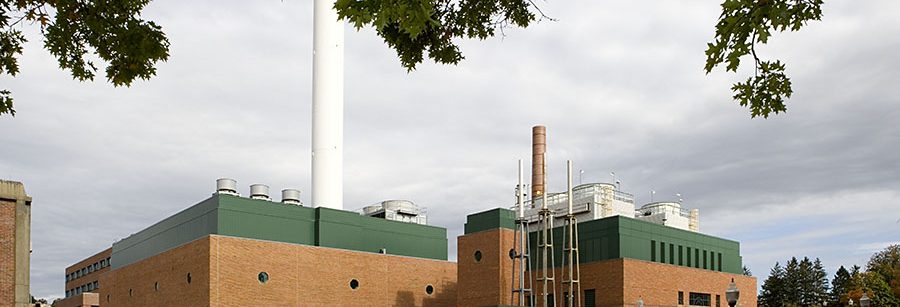Water Management
Land Management
Air Management
The University of Connecticut is required to comply with many Federal and State regulations that are intended to preserve air quality. UConn is committed to maintaining compliance with all applicable air regulations. To that end, the University holds permits, keeps appropriate records, files required reports with the Connecticut Department of Energy and Environmental Protection (CT DEEP) and the Environmental Protection Agency (EPA), conducts required emission testing, and appropriately maintains equipment.
UConn produces most of the energy it uses at the Storrs campus, in the form of electricity, steam and chilled water which are all generated onsite. Major fuel burning equipment at the campus includes three permitted boilers, four chiller engines, two diesel-fired emergency engines, and a diesel-fired black-start emergency generator at the Central Utility Plant. Adjacent to the Central Utility Plant is UConn’s Cogeneration facility, which has three permitted combustion turbines, each with a corresponding duct burner. The black-start generator at the Central Utility Plant provides emergency power to the Cogeneration facility itself if needed. The Supplemental Utility Plant contains one permitted boiler and two diesel-fired emergency generators. The South Campus Chiller Plant serves the south section of campus and includes one natural gas-fired chiller engine and one diesel-fired emergency engine.
Several other emergency engines throughout campus either have individual operating permits or operate under the permit-by-rule conditions of the Connecticut air regulations.




